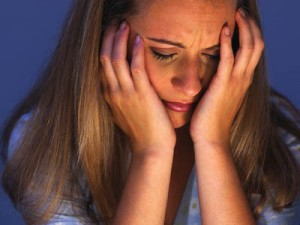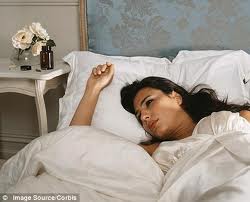What are the Symptoms of anxiety?
Symptoms of Anxiety
 Anxiety is a natural response to fear, which may be compared to an alarm that is triggered off in the body causing a person to feel stressed or frightened. Everybody at some point in their life will experience anxiety, whether it stems from worrying about family issues, exams or meetings at work.
Anxiety is a natural response to fear, which may be compared to an alarm that is triggered off in the body causing a person to feel stressed or frightened. Everybody at some point in their life will experience anxiety, whether it stems from worrying about family issues, exams or meetings at work.
Symptoms of anxiety disorder is when constant worry and fear is preventing a person from living their life. There are anxiety treatments for people who suffer with anxiety disorders. It is essential to look out for the symptoms of anxiety disorder and to know when it is just more than the normal anxiety. One symptom of anxiety is when it becomes a constant occurrence and overwhelming, it then can start interfering with a person�s life, relationships and work.
Symptoms of anxiety to look out for:
Worried, tense or feeling on edge constantly
Haunted by fears that are irrational
Thoughts that something terrible will happen if things are not done in a certain way Exsesive, urealistic worring
Heart pounding
 Avoiding situations or activities as they may cause the person to feel anxious. There are several forms of anxiety disorder each one has slightly different symptoms of anxiety. Whether the person has intrusive thoughts, panics at the thought of being in the public or live in a constant state of worry, there is always one key symptom of anxiety persistent or severe worry. The most common conditions are as follows:
Avoiding situations or activities as they may cause the person to feel anxious. There are several forms of anxiety disorder each one has slightly different symptoms of anxiety. Whether the person has intrusive thoughts, panics at the thought of being in the public or live in a constant state of worry, there is always one key symptom of anxiety persistent or severe worry. The most common conditions are as follows:
Generalized Anxiety Disorder (GAD)
This is a chronic disorder, anxiety symptoms are immoderate long periods of anxiety and worry about everyday life. GAD suffers usually feel worried and frightened about situations such as health, work, money or school. The constant expectation of failure or disaster can interfere with life. "Panic Disorder"
The symptoms of Anxiety are generally short or unexpected sudden attacks of intense fear and apprehension. Sufferes may see physical symptoms of anxiety such as; shaking, confusion, sickness and difficulty breathing.
Social Anxiety Disorder
The symptoms of anxiety are usually a fear of being judged in a negative a way by others. This can cause the suffer to avoid situations of human contact which can make normal life a struggle.
Phobea
Phobea is an irrational fear of an object or a situation phobias are quite different from generalized anxiety disorder. The anxiety caused by phobia has a specific cause even if perfectly irrational or not needed.
Obsessive-Compulsive Disorder (OCD)
This form of anxiety show symptoms of anxiety such as repetitiveness in actions or thoughts. A person will usually beware their actions are unnecessary but will continue to carry them out to control their anxiety. The symptoms of this condition can be compared to superstitious. For example they will check the doors have been locked in certain ways, turn the light switches in a specific way or walk in a specific way. Repetative cleaning is one of the most common symptoms associated with OCD. Anxiety disorder displays both physical and emotional symptoms
Emotional Symptoms of Anxiety
- Feelings of apprehension or dread
- Find it hard to concentrate
- Feeling tense and on edge
- Expecting the worst all the time
- Irritable
- Feeling restless
- Looking out constantly for signs of danger
- Forgetfulness
Physical signs of anxiety
- Heart Pounding
- Sweating
- Dihorea or more frequent trips to the bathroom to urinate Shortness of breath
- Tremors and twitches
- Muscle tension
- Headaches
- Fatigue
- Insomnia
Symptoms of anxiety attacks
Anxiety attacks are commonly known as panic attacks which are heightened episodes of fear or panic. For some people they happen suddenly with little or no warning at all. Most attacks usually peak after ten minutes and do not usually last for more than half an hour. The physical symptoms can be terribly frightening and to the person or onlookers it can appear like a heart attack. Some of the symptoms of an anxiety attack or panic attack could include: palpitations or chest pains, struggling to breath, hyperventilation, shaking, sickness hot or cold flashes.
Treatments for Anxiety
A number of options are available for treating anxiety and many have proved remarkably successful.
Councelling
Cognitive-behavioral therapist will try and pinpoint the patients thinking patterns that they associate with their anxiety. The therapist will help to limit delusive thoughts and feelings. They will also help the patient change the way they may think or react to a certain object or situation that may trigger their anxiety.
Medical Treatment
If the a patients anxiety is due to a physical abnormality, the treatment of drugs decided to treat that certain abnormality. They will try to regulate and control the physical cause of what triggers the anxiety. Anti depressants may sometimes be described to try and help to control the mental triggers of anxiety.
Self help
There is a number of measures a person can undertake to try and help control their anxiety.
Make sure each day you find time to relax
Look after yourself, eat properly and exercise
Do not take on more responsibilities than you can handle.
Get emotional support with friends or family.
Yoga or meditation is a brilliant stress reliever and can be done easily at home.
|